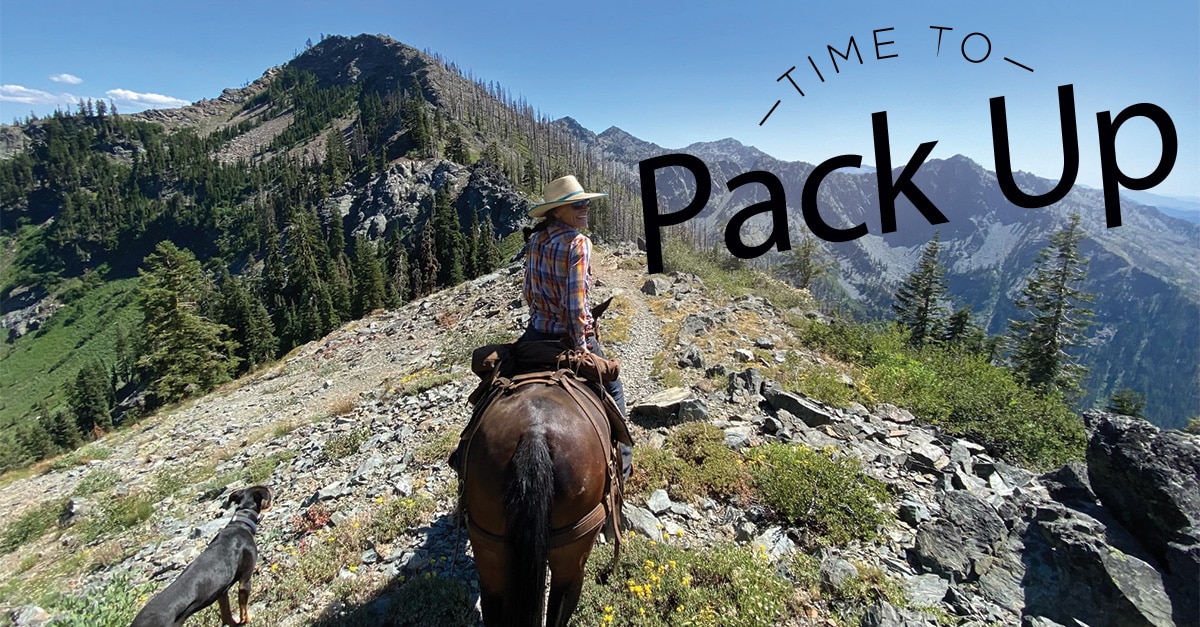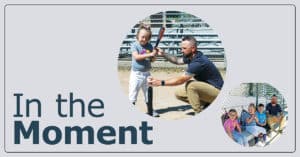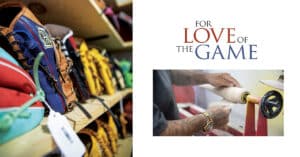Time to Pack Up
Ellen Andrews, Packer for the U.S. Forest Service…
“So, stubborn a a mule is a real thing. You’ve gotta have some buy-in from the mule if you want to get anywhere,” explains Ellen Andrews, a packer for the U.S. Forest Service, who works out of the field office in Ft. Jones, California and whose job entails everything from carrying in equipment into hard-to-reach wilderness areas to packing out injured firefighters when the smoke from forest fires restricts helicopter access. “The process of packing is basically moving equipment and goods using stock, usually horses or mules. A packer is a person who performs the job. A pack string is a packer with their group of mules. And, then a pack train is a group of packers and strings. So, if there are multiple of us packers going somewhere, we would form a pack train.”
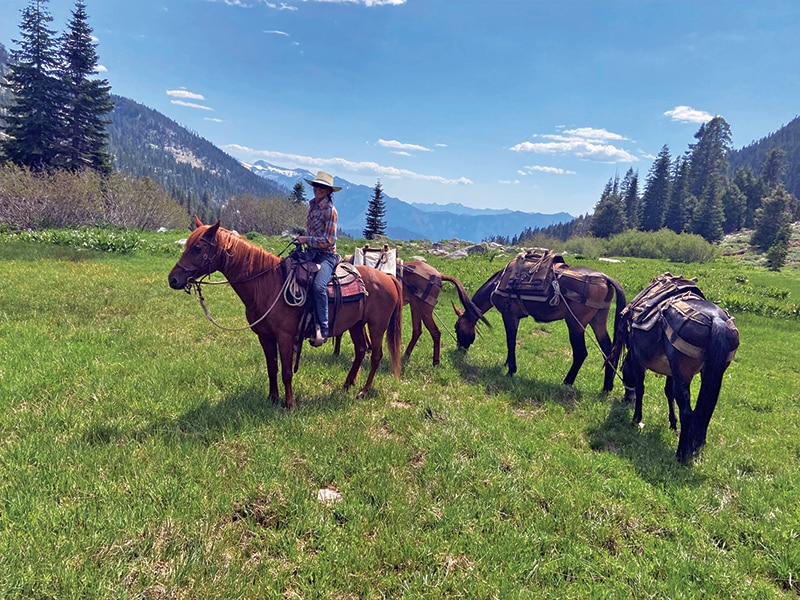
Not only do packers help access the woods during forest fires, they’ve been a part of the Forest Service since the beginning. “Under the Wilderness Act (of 1964), there is no motorized use within the wilderness. There’s also some language in there about preserving historical skills, which packing falls under. So, the Forest Service and the Park
Service have always relied on packers to move the materials. Historically, they’ve packed amazing things, like giant pieces of mine equipment. But packers are pretty dedicated to their craft. A lot of them are very proud of being able to pack oddly shaped or awkward things.”
Andrews is also very clear on the difference between mules and horses. “Mules are a cross between a horse and a donkey. Donkeys weren’t really built to run. They evolved in the mountains and canyons of Asia, and they have better decision-making skills. That means, when presented with a threat, they have to decide between fight and flight. A horse’s response is typically flight, but mules will often say, ‘Hey, wait a minute, check it out. The ropes are all tangled around my legs. I’m just gonna wait here for this packer to help me and then I’ll make another decision that’ll be OK.’ It makes them ideal for packing.” Andrews also compliments the physicality of mules. “They’re just so tough physically. They’re really nimble on the rocks. And, much like any working animal, they love having a job.”
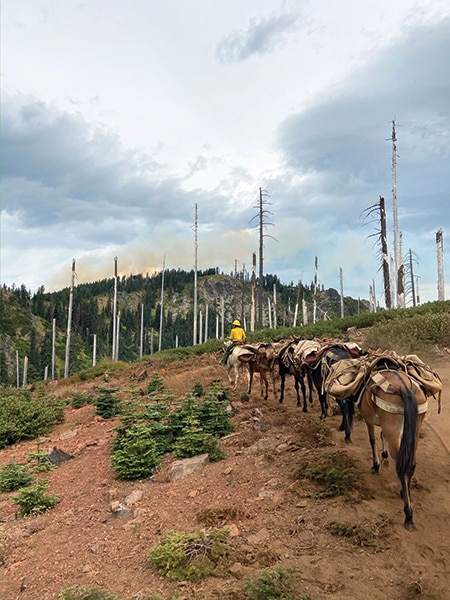
Andrews lives near the mountains in Scott Valley and is a rare breed as a second-generation packer. “My father had the same job that I have now. When I was growing up, he was packing and working trails for the Forest Service, and my family would just kind of go with him. As a kid, I can remember my father having this very serious talk with me about how, when I was 8, he was going to pay me a dollar a day. All I needed to do was get up in the morning and get the horses, because when we’re camped in the mountains, we turn the horses loose at night and then somebody wakes up early and goes off to find them. So, my sister and I started doing that and then at some point my sister sort of dropped out of it and I just kept on. I was 15 the first time I packed a crew by myself. “
Andrews isn’t shy when it comes to the lack of gender or ethnic diversity in her job. “I was fortunate enough to grow up in a situation where there was just never any question of whether I could do these things. My dad was very matter of fact about it. Like, ‘Why don’t you go get these meals and go move those tools’ or whatever the task was. He just spoke like, of course there was nothing I couldn’t do. It wasn’t until much later in my career that I ever questioned that this was a thing that was difficult or there were people who didn’t think I could do it.” But Andrews is also supportive of the change she’s seeing in the Forest Service, especially with the apprenticeships through its Center for Excellence.
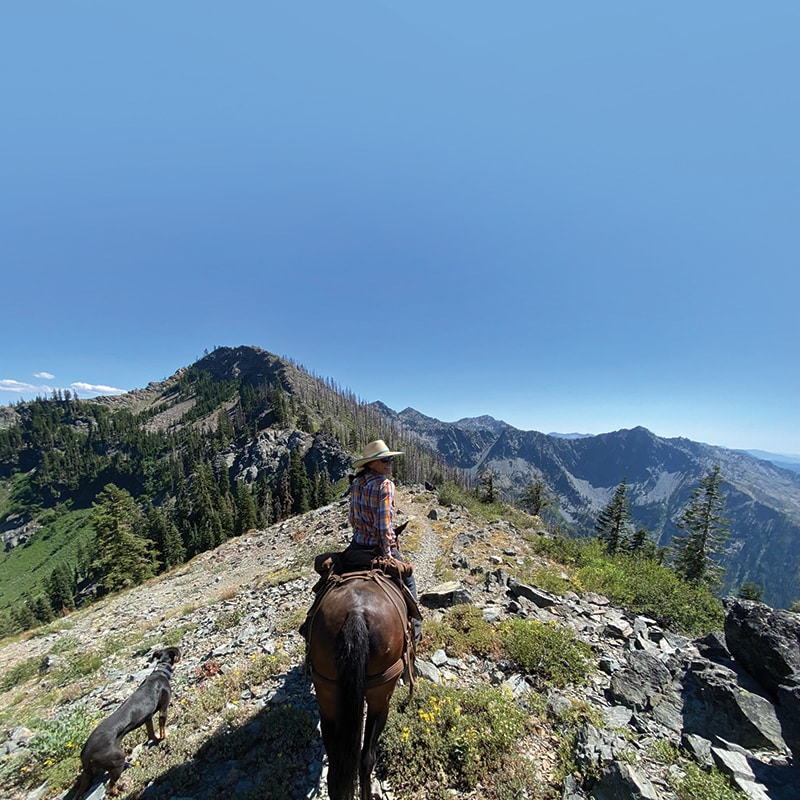
For Andrews, the truth is in the stock. “I love how they say that when you meet somebody, you only really can see 10 percent of what that person is about, and the other 90 percent is that stuff you don’t necessarily know about somebody. Well, I think that mules see that other 90 percent. It doesn’t matter to a mule your race, orientation or gender. They just see if you’re a pushover or not. They see if you’ve got grit or not. And so in reality, I think that packing is a thing is available to everyone, as long as you’ve got the stamina.” •

